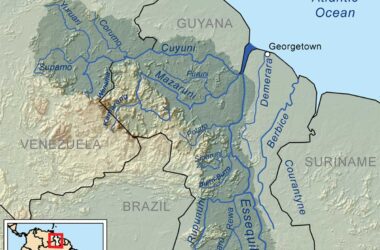“After forty-five years of being in charge of its external and internal affairs, Saint Lucia is still a far cry from being a politically mature country.”
That statement was made last week by an acquaintance of our editor right here in our editorial office during a discussion on local politics being more of a dividing factor rather than an element of unity and nation building.
So we ask: Has Saint Lucia reached political maturity after 45 years of Independence, or is it a far cry from that landmark?
A fair answer to this question could only be arrived at by first understanding that political maturity is the ability of a nation to govern itself effectively, responsibly and democratically. It is not a fixed state, but a dynamic process that requires constant learning, adaptation and improvement. Political maturity is not only determined by the formal institutions and rules of the political system, but also by the values, attitudes and behaviours of Saint Lucians and their political leaders.
One of the key factors that contribute to political maturity is political education. Therefore, we ask: What is political education?
We posit that political education is not just about acquiring factual knowledge about politics, but also about developing critical thinking, civic engagement and ethical judgment, an education we believe that should start from an early age and continue throughout life, both in formal and informal settings. It should aim to foster a culture of dialogue, tolerance and cooperation among different groups and perspectives.
How often are projects started by one party when in government and then abandoned when the other becomes the government, incurring debts which the country has to shoulder for no visible benefit.
Then there are the political factions, which through lack of tolerance and cooperation, causes much political discord in the country, to the point where whatever one side does is always severely criticised by the other.
Would it be incorrect to say that the frequency of disagreements between political parties and parliamentarians on basic things, such as the construction of sheltered cubicles for street vendors, underscores political immaturity in the country?
However, what is clear is that political participation (from all sides), a factor which influences political maturity, is rare in Saint Lucia. It is common practice now for parliamentarians and senators to stage walkouts from their respective chambers.
It appears that Saint Lucians have failed to understand that political participation is not just about voting in elections, but also about being involved in various forms of civic action, such as joining social movements, volunteering for causes, lobbying for policies, running for office and most importantly, getting our politicians to offer themselves up to debate each other respectfully.
While there are some who will view such debates as a small step towards political maturity, we view such steps as big steps in our journey towards political maturity.
Make no mistake, such debates are effective modes of assessing a candidate’s worth as a representative of a constituency. Too often political parties offer us candidates to represent us in parliament who are, simply put – useless.
Too often, we elect candidates to represent constituencies, who do not have an iota of a plan for their constituencies, unable to speak spontaneously to questions asked about their stewardship and can clearly be seen to be looking out more for themselves, their friends and families other than those who elected them to office and really need their involvement to make their living better.
Political participation should also be inclusive, diverse and representative of the society in which we live. It should be informed, constructive and respectful of the democratic norms and values.
Let’s not forget political accountability, a factor that affects political maturity. It is the mechanism by which the people can hold their leaders and institutions accountable for their actions and decisions. Political accountability can be exercised through various means, such as checks and balances, transparency, oversight, feedback, evaluation, or sanctions. Political accountability should be effective, timely and fair. It should also be responsive, adaptive and innovative.
Seeing that political maturity is not a given, but a goal which requires constant effort and commitment from all stakeholders, and that it is not a guarantee of success, but a precondition for sustainable development and peace, not a privilege, but a right and a responsibility of every citizen, we come back to the question: Has Saint Lucia reached political maturity after 45 years of Independence, or is it a far cry from that landmark?





